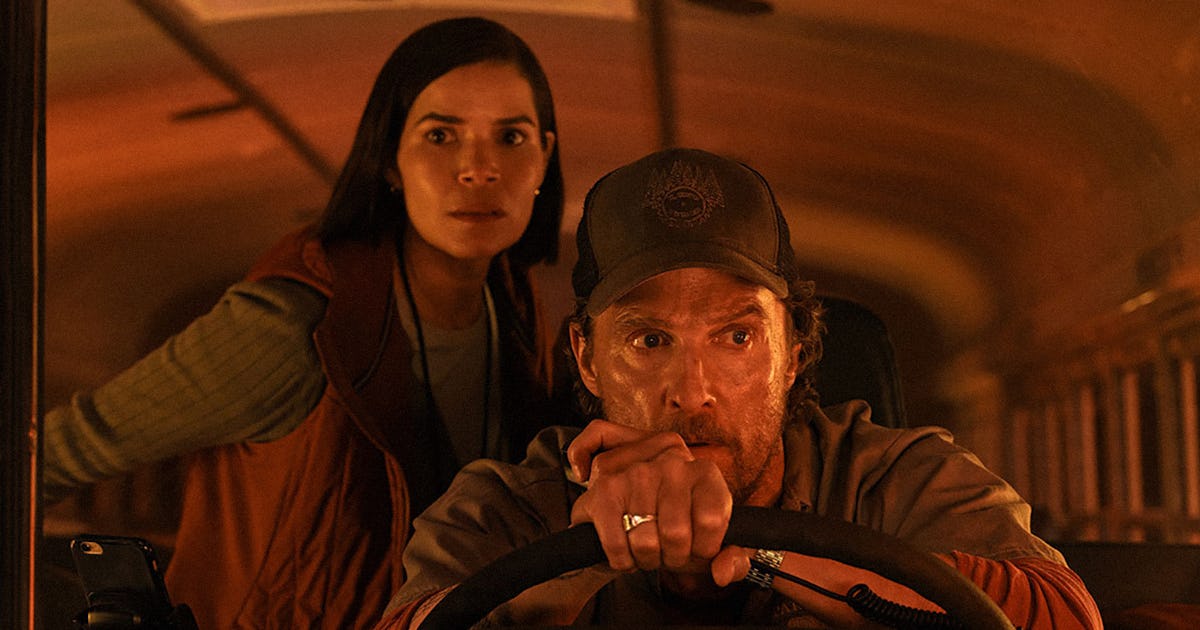
"The disaster movie is an endangered species on the Hollywood food chain. Like the romantic comedy, it was once an apex predator, dominating the box office without much of a fight. Now it's rare to see any getting the green light at all, much less doing well in theaters."
"Maybe it's because we've moved beyond fictional depictions of destruction: It feels redundant to bring up our real-life dystopia again and again, but do we really need to dramatize the state of the world any more than it already is? We don't have to do more than scroll through social media (or, occasionally, look out the window) to see a disaster staring back. New films also don't have to reach very far into the past to rip a harrowing story from the headlines, as The Lost Bus demonstrates, for both better and worse."
"The Lost Bus follows an against-all-odds tale of survival during California's deadliest fire in recorded history - not the Palisades Fire, which ravaged the state earlier in 2025, but the 2018 Camp Fire, which in a lot of ways still feels like too fresh a tragedy to depict. It doesn't help that this film adaptation focuses less on the circumstances that caused the fire than on a handful of overwrought tropes designed to make us "feel" for its unsung heroes."
Disaster films have fallen from prominence, partially because real-world calamities make fictional depictions feel redundant. Social media and daily life now present constant images of catastrophe, reducing appetite for dramatized destruction. The Lost Bus dramatizes survival during the 2018 Camp Fire and leans heavily on sentimental tropes rather than exploring root causes like climate change. The film vacillates between moments of genuine disaster-movie prowess and melodramatic excess. Strong performances and tense sequences emerge, but the insistence on hitting prescribed emotional beats undermines consistent dramatic impact and leaves the film uneven.
Read at Inverse
Unable to calculate read time
Collection
[
|
...
]